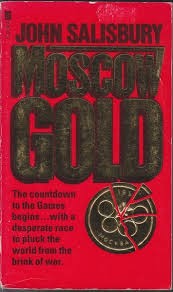
With Cold War espionage fiction at its height, the Moscow Olympics of 1980 presented a fine opportunity for authors to write thrillers whose very titular contemporaneity might propel them into the best seller list.
Strangely, the two thrillers that I know of —and have read— in this category were both written by well-known authors who chose to adopt pseudonyms for the purpose.
Moscow 5000 was written by renowned and prolific bestselling author Craig Thomas, under the pseudonym David Grant. Moscow Gold came from the pen of David Caute, writing under the name John Salisbury.
The reason for Caute’s pseudonymity seems a little more obvious than that for Thomas’s. Caute is a writer of both literary fiction and scholarly works on political philosophy. At the time of the publication of Moscow Gold, Caute was literary editor of The New Statesman. He presumably wished to signal that he knew himself to be writing a work of popular page-turning fiction, replete with international intrigue, sex, sadism, and violence.
As ever, I read this novel for its Russia-related content. Scanning the shelves of second-hand bookshops for titular keywords, ‘Moscow’ comes high up that list. In this case, as it happens, that particular approach proved to some extent to be deceptive and defective. Yes, the central event around which the plot revolves is the Moscow Olympics of 1980; but there is really very little about Russia/the Soviet Union in the book, and only the final page and a half is set there.
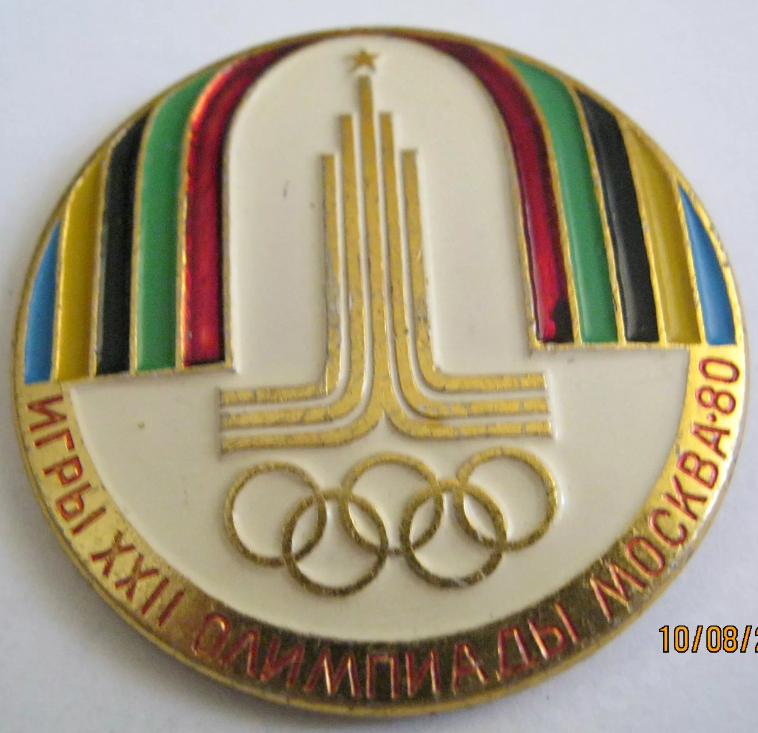
Ah — the Moscow Olympics of 1980. Sebastian Coe vs Steve Ovett. A Scot winning the 100 metres. If you want to read a good thriller that actually takes place in the Soviet Union before and during those Olympic Games, then read Moscow 5000.
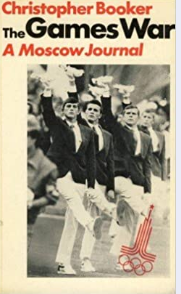
And if, like me, you have a certain fascination for the Moscow Olympics from a non-fiction perspective, then I recommend The Games War: a Moscow Journal (1981), by the late Christopher Booker.
As for Moscow Gold, it won’t take me long to dispose of this review from the Russia-in-fiction perspective.
The front cover blurb of my paperback edition proclaims
‘the countdown to the Games begins … with a desperate race to pluck the world from the brink of war.’
What we get is indeed the countdown to the Games, and a well-told story of international espionage framed around the issue of state-recognition, in particular, whether Israel and South Africa would be able to compete in the 1980 Olympics, threatened as they might be by either non-recognition and/or boycotts on the part of other states.
The plot would seem to give away that the writing of the novel was completed at least six months or more before the Games of the XXII Olympiad took place; there is no hint at all in Moscow Gold of the real-world cause that lay behind the biggest Olympic boycott of all, when the United States and many of its allies refused to send teams to Moscow following the Soviet invasion of Afghanistan in December 1979.
In Moscow Gold, Salisbury/Caute focuses for the most part on the politics of southern Africa; a theme central to much of David Caute’s work published under his real name. However, Caute has also written non-fiction books on Marxism, left politics in the West, and Cold War defections. A key plot element in Moscow Gold is the defection of a female Russian pentathlete to the United States several months before the Moscow Olympics are due to commence. The naïve and attractive Tatiana Larin falls in love with an American athlete; but all is not as it seems.
Presumably the author has directly borrowed his heroine’s name from Pushkin’s Eugene Onegin (though why he would omit the final ‘a’ from her surname, I do not know).
One could even see in this borrowing, the nudge and wink of a ‘serious’, literary author gesturing to any readers in the know that, though he might be writing a sex-and-violence potboiler, he retains his intellectual standing. It is a temptation —one to which I’m momentarily giving in— to draw parallels between the character development of his sexy Soviet Olympian, Tatiana Larin, and that of Onegin’s potential paramour, Tatiana Larina.
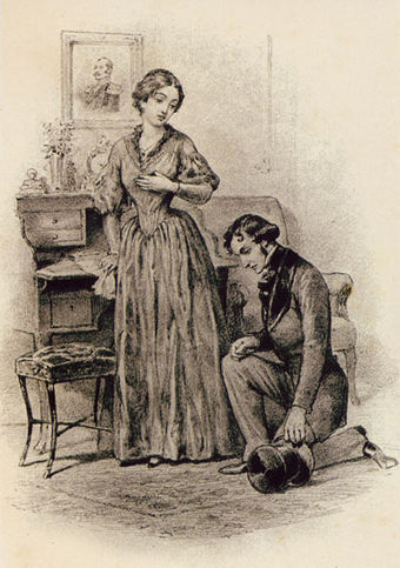
Moscow Gold’s Tatiana develops from innocence to worldliness as the story proceeds, and there is even a scene —as in Pushkin’s narrative poem— where she looks through the letters and documents of her loved one and begins to question his true character.
Beyond this presumably intentional and yet deeply buried literary allusion, the engagement with Russia in Moscow Gold is limited to the international politics of the Soviet Union. Early on in the novel several pages are taken up by what amounts to fictionalised reportage of Soviet lobbying to be awarded the Olympics, including portrayals of those long-departed real-life Communist officials, involved in the process; for example, Mayor of Moscow, Vladimir Promyslov, and the Soviet Minister of Sports and Education, Sergei Pavlov.
Whilst there is a good deal to admire in the readability of Moscow Gold, Salisbury/Caute does repeatedly do that thing that too many thriller writers do, namely, put across the sort of facts that you might get from a tourist information booklet, a business presentation, or a newspaper article, in the form of conversation or simply scene-setting. It doesn’t convince as literature. For example:
An imposing array of chauffeur-driven limousines was drawn up in front of Vienna’s magnificent Rathaus, the Town Hall. Designed by the Wurttemberg architect Friedrich von Schmidt 100 years ago, the building presents a vast neo-Gothic façade, softened by Renaissance elements and decorated by statues of artists and public figures. At its 300-foot pinnacle the Rathaus is crowned by the famous ‘Iron Man’, the statue, ten feet high, of a knight in armour holding a spear 18 feet long.
Moscow Gold, p. 38
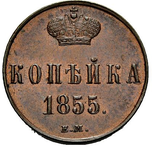
If you are going to go into that much guidebook-style detail in a novel called Moscow Gold, then the least you could do would be to mention that the Iron Man statue was cast from melted Russian kopecks.
Somehow this section, coupled with the author’s pseudonymous surname, put me in mind of that Russian TV interview from 2018 with the two men accused in the UK of the attempted murder of former Russian spy turned British spy, Sergei Skripal, in Salisbury in the spring of 2018. When asked why they had been in Salisbury at that time, one of the Russian suspects responded that they had gone to visit Salisbury Cathedral
famous not just in Europe, but in the whole world. It is famous for its 123-metre spire, it is famous for its clock, the first one of its type ever made in the world.